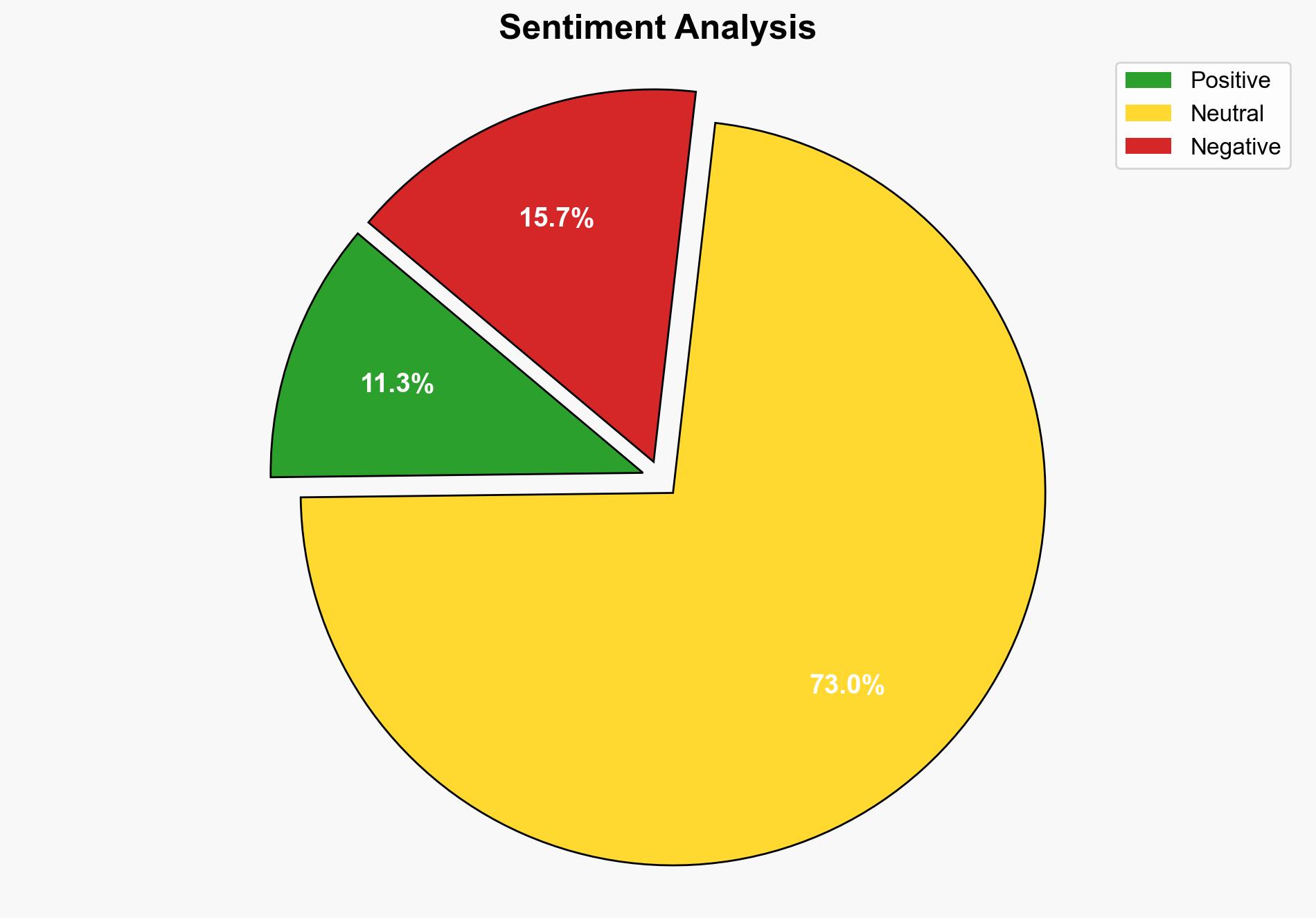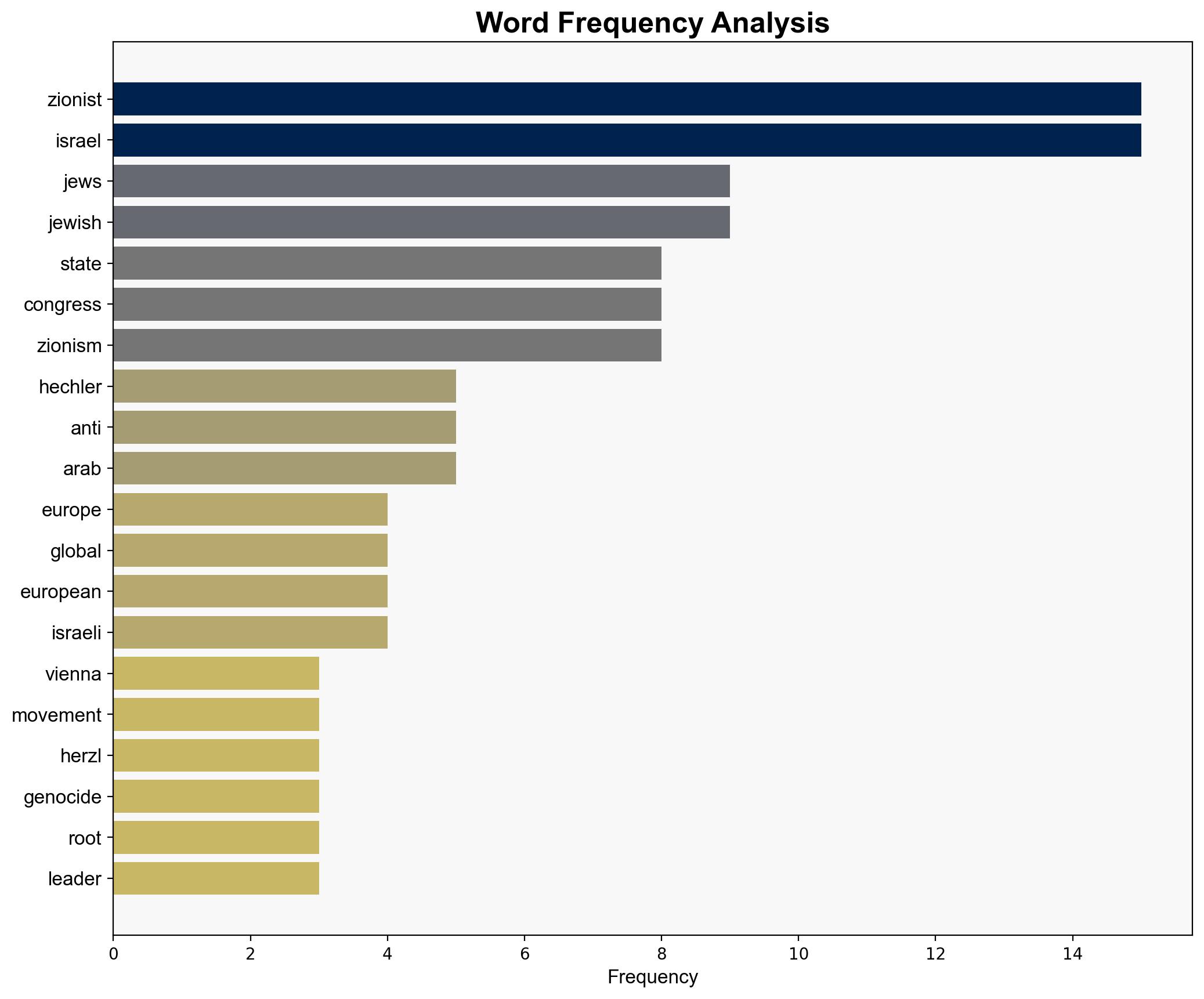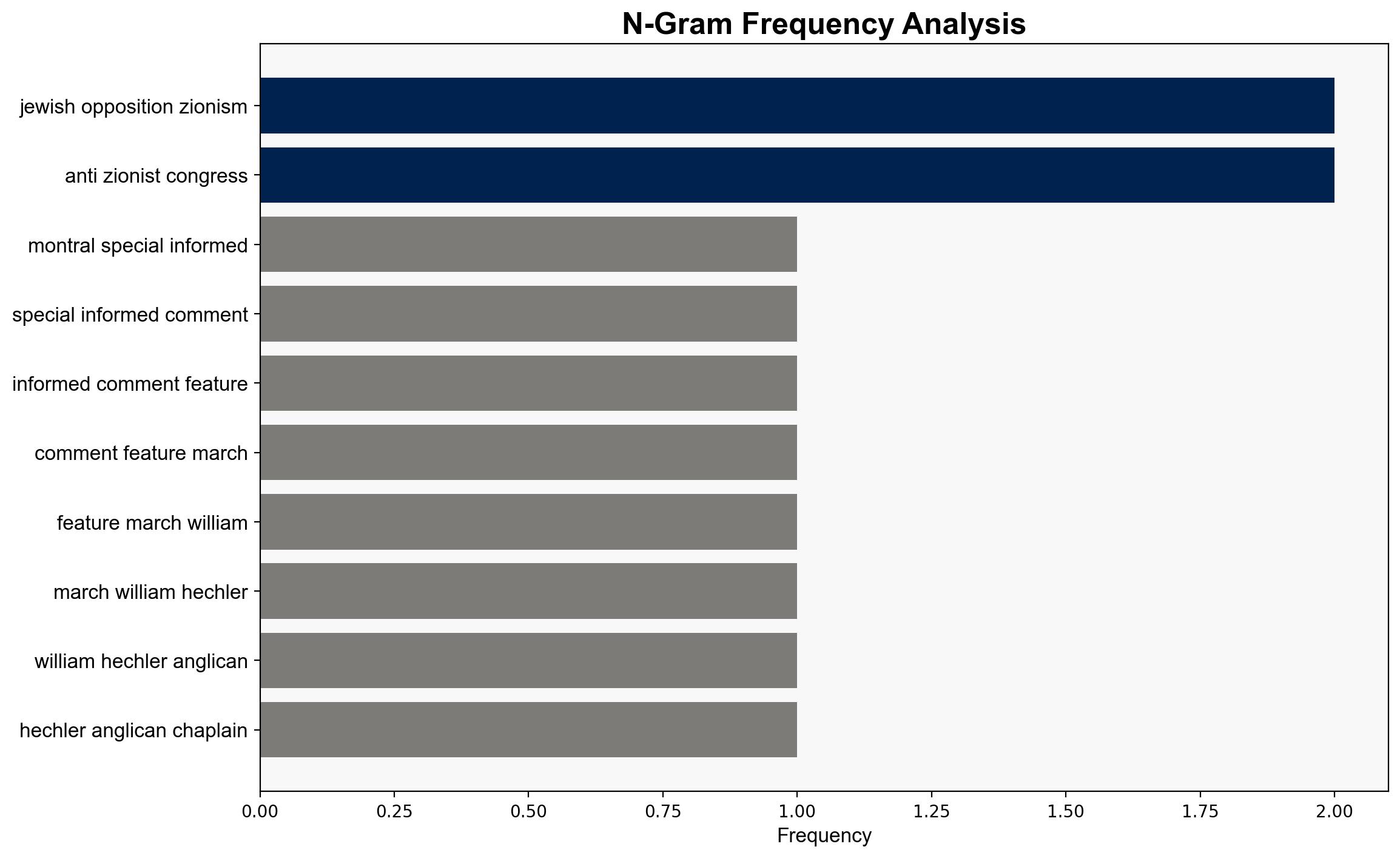Anti-Zionist Jews Gather at the Birthplace of Zionism – Juancole.com
Published on: 2025-07-24
Intelligence Report: Anti-Zionist Jews Gather at the Birthplace of Zionism – Juancole.com
1. BLUF (Bottom Line Up Front)
The most supported hypothesis is that the gathering of anti-Zionist Jews in Vienna represents a significant ideological challenge to Zionism, highlighting internal Jewish dissent and broader geopolitical tensions. Confidence level: Moderate. Recommended action: Monitor the influence of anti-Zionist movements on regional stability and international relations, particularly in relation to Israel’s diplomatic and security posture.
2. Competing Hypotheses
1. **Hypothesis A**: The anti-Zionist congress in Vienna is primarily a symbolic protest against Israeli policies, aiming to draw international attention to perceived injustices against Palestinians and to challenge the legitimacy of Zionism as a colonial project.
2. **Hypothesis B**: The congress represents a broader strategic effort to weaken Israel’s geopolitical standing by fostering divisions within the Jewish community and leveraging global criticism of Israeli policies to influence Western and Middle Eastern political dynamics.
Using ACH 2.0, Hypothesis A is supported by the historical context of Jewish opposition to Zionism and the focus on Palestinian issues. Hypothesis B is less supported due to the lack of direct evidence linking the congress to a coordinated geopolitical strategy.
3. Key Assumptions and Red Flags
– **Assumptions**: Both hypotheses assume a coherent anti-Zionist ideology among participants and that the congress has the capacity to influence international opinion.
– **Red Flags**: The lack of direct evidence of strategic coordination in Hypothesis B. Potential bias in source reporting, given the emotive language and historical framing.
– **Blind Spots**: Limited information on the internal dynamics of the congress and its reception by global Jewish communities.
4. Implications and Strategic Risks
– **Geopolitical**: Increased anti-Zionist sentiment could strain Israel’s diplomatic relations, particularly with Western allies who are sensitive to public opinion.
– **Economic**: Potential impacts on Israel’s economy if international criticism leads to sanctions or divestment movements.
– **Psychological**: Heightened tensions within Jewish communities globally, potentially leading to increased polarization.
– **Cascading Threats**: Escalation of anti-Israel rhetoric could lead to increased regional instability, affecting peace processes and security dynamics.
5. Recommendations and Outlook
- Monitor the activities and rhetoric of anti-Zionist groups for indications of broader strategic objectives.
- Engage in diplomatic efforts to address concerns raised by anti-Zionist movements, potentially mitigating their influence.
- Scenario Projections:
- Best Case: The congress leads to constructive dialogue and potential policy shifts that improve Israeli-Palestinian relations.
- Worst Case: The congress exacerbates divisions within the Jewish community and leads to increased geopolitical tensions.
- Most Likely: The congress raises awareness but has limited immediate impact on geopolitical dynamics.
6. Key Individuals and Entities
– Theodor Herzl: Historical figure associated with the founding of Zionism.
– William Hechler: Historical figure linked to early Zionist advocacy.
– Ella Shohat and Avi Shlaim: Scholars providing critical perspectives on Zionism.
7. Thematic Tags
national security threats, geopolitical dynamics, regional stability, ideological movements




